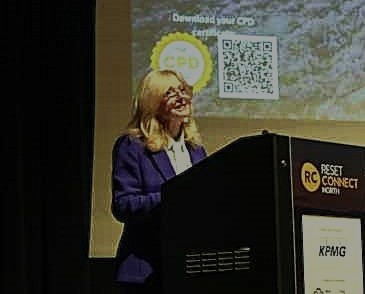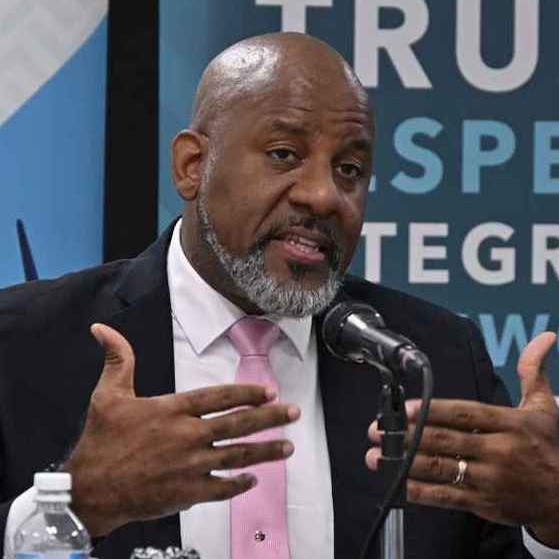Before he delivered his 2023 Nobel Prize acceptance speech, Professor Moungi Bawendi was nervous.
Unlike his lectures at the Massachusetts Institute of Technology, this speech would be for a global audience and preserved for years to come. Bawendi rummaged through old files to tell the story of his decades-old research he once hoped would advance lasers for telecommunications.
Instead, his new method for creating quantum dots would later be used in television screens and medical imaging for cancer treatment, as well as agricultural innovations. “When we were doing the discovery process, we had no idea what the applications” would be, Bawendi says.
“It was all curiosity-based science.” The importance of curiosity to scientific innovation became a theme of Bawendi’s Nobel Prize acceptance remarks.
“Scientists are explorers; we ask questions and resolve to find answers about the world around us,” he said in Stockholm in December 2023. “The answers sometimes change us profoundly, and sometimes they lead to technologies with big impact.”
This year, a new round of Nobel Prize winners will deliver speeches in Oslo and Stockholm on their award-winning work. “This is going to be one of the biggest platforms they are ever going to have in their careers,” said Ed Barks, a strategic communications consultant and author of The Truth About Public Speaking.
The 2024 winners hail from the fields of chemistry, physics, literature, and economics and include a group of atomic bomb survivors, who will receive the Nobel Peace Prize. In addition to the worldwide reach of Nobel lectures, Barks says winners in science fields often face the added challenge of simplifying technical research for a general audience.
Columbia University Professor Emeritus Louis Brus, who shared the 2023 Nobel Prize in chemistry with Bawendi and Aleksey Yekimov, of Nanocrystals Technology Incorporated, says scientists’ speeches also must explain the practical benefit of their research. “The Nobel committee is very interested in relevance to society,” Brus said.
“They want to know what you did and how it changed the world.” Washington-based poet and author E. Ethelbert Miller says past winners, like American literature laureate William Faulkner, used their acceptance speeches as an “opportunity to really address mankind as a whole and putting an emphasis on the human spirit.”
“I believe that man will not only endure, he will prevail,” Faulkner told the Academy in 1950, addressing a world still recovering from the destruction of World War II. “The poet’s voice need not merely be the record of man, it can be one of the props, the pillars to help him endure and prevail.”
Novelist John Steinbeck also addressed a writer’s role in advancing society in his 1962 Nobel acceptance speech. The writer “is charged with exposing our many grievous faults and failures, with dredging up to the light our dark and dangerous dreams for the purpose of improvement.”
In her 1993 speech accepting the Nobel Prize for literature, Toni Morrison (pic) addresses the use of language in societies. She praised the power of words to express life’s meaning but cautioned that language can also be used to repress a mutual exchange of ideas.
“Be it grand or slender, burrowing, blasting, or refusing to sanctify; whether it laughs out loud or is a cry without an alphabet, the choice word, the chosen silence, unmolested language surges toward knowledge, not its destruction,” Morrison said.
Miller says powerful words delivered on a Nobel stage can impact societies. In his acceptance speech 60 years ago, Martin Luther King Jr. likened his Nobel Peace Prize to a vote of confidence for the nonviolent struggle of the U.S. Civil Rights Movement.
“I refuse to accept the view that mankind is so tragically bound to the starless midnight of racism and war that the bright daybreak of peace and brotherhood can never become a reality,” King said December 10, 1964. The following year, the U.S. Congress passed the Voting Rights Act of 1965 , barring discrimination in voting.
Bawendi says winning the Nobel Prize has led to numerous other speaking opportunities. And drafting his acceptance speech helped prepare him to better communicate to broader audiences. “I have been asked to give the same talk many times now,” he said, adding that he often encourages young people to follow their curiosity.
“I give a version of this talk, and I’m much better at it now than I was in 2023.” Miller says delivering a Nobel Prize speech is an opportunity few ever receive.
“If you have the microphone, make sure you use it,” he said. “Make sure you speak for those who can’t.”











